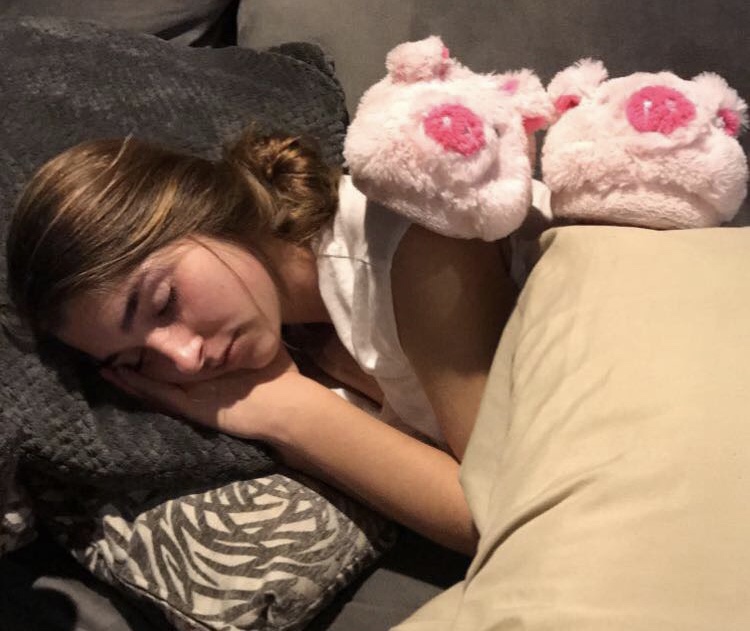Trouble Sleeping?
Here to help you fall asleep (when you’re supposed to).
Before we dive into the effective ways to fall asleep, let’s focus on why sleep is important in the first place. Most importantly, it significantly impacts an individual’s physical body. A deprivation of sleep is one of the strongest risk factors of human obesity, as it causes an unnatural fluctuation in the body’s hormone levels, specifically ghrelin (stimulates appetite) and leptin (suppresses appetite). Additionally, an improved amount of sleep can benefit athletic performance, as a Stanford experiment proved while studying a sample of basketball players. Following the extension period of sleep, the athletes displayed a significant improvement in reaction time, speed, and accuracy. Also equally important, are the mental benefits of getting a good night’s rest!
MIND
- Exposure to light and dark is critical when training your body to adhere to its Circadian Rhythm. It’s pretty simple: when exposed to bright light, the human body feels instructed to stay alert. Conversely, when sitting in a dark environment, people produce a higher level of melatonin and subsequently feel more sleepy. That being said, try to gravitate towards brightly-lit areas throughout the day and then submerge yourself in lonely darkness at night.
- Yoga and meditation certainly are not for everyone, but they are incredibly effective in relaxing a stressed conscience. By practicing breathing patterns and body movements, yoga relieves the body of built up tension!
- Music also catalyzes sleep as relaxing melodies produces sedative effects.
- Journaling/reading is such a soothing activity. By avoiding the bright fluorescent light from cell phones and laptop screens, and instead resting your eyes on paper, you are relaxing the hyperactivity and stress on your brain, therefore better preparing your body to fall asleep. I highly recommend journaling or annotating literature when you are feeling especially overstimulated.
BODY
- Lower your room temperature to around 60–75ºF in order to create an ideal sleep setting. If your room is too warm at night, you will probably have difficulty falling asleep and may even wake up in the middle of the night due to sweating.
- Avoid day naps because not only do they disrupt your Circadian Rhythm, they also directly lead to poor sleep quality and sometimes sleep deprivation. While 20ish minute naps can be physiologically beneficial, anything extending that time can negatively impact your sleep schedule and prevent you from falling asleep at night.
- Exercise is known for increasing the duration and quality of sleep. Because excess levels of serotonin are produced during physical exercise, the surplus of neurotransmitters improves your nighttime rest period.
NUTRITION
- Avoid high-carb meals before going to bed. While they will likely make you fall asleep faster, they are detrimental to your sleep quality. Instead, eating a meal rich in fat will put you to sleep quickly and ensure a good night’s rest. In the event that you want to eat a ton of carbs, especially if you’re “carb-loading” before an athletic event, make sure to eat the meal four hours prior to going to bed.
- Limit your caffeine intake as that is a recipe for disaster. Conversely, turn towards a soothing beverage, such as camomile or decaf green tea. Something warm will further relax your body and put you at ease.
- Supplements are always a trusty last resort if you still cannot fall asleep. Melatonin supplements are a sure-fire way to knock yourself out if you’re feeling extremely restless or desperately need to go to bed.
- Recommended foods: almonds, walnuts, turkey, fatty fish (salmon), oatmeal, an assortment of teas, kiwi









